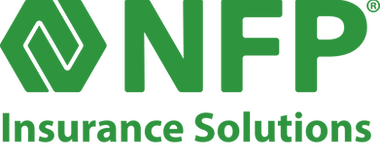Overdose Awareness Day
We recognize Overdose Awareness Day each year on August 31st (ODAD)
Union County
We partner with local businesses and community providers to set up Overdose Education Stations throughout Union County. We teach community members about the free recovery resources available, how to administer naloxone, and hand out naloxone.
Hudson County
We do a community resource fair in Jersey City, bringing together a wide variety of resource providers that offer free services to Hudson County residents and beyond. We also have inspirational recovery speakers, naloxone demonstrations, and free giveaways.
Important Overdose Facts
An overdose means having more of a drug (or combination of drugs) than your body can cope with. All drugs can cause an overdose, including medication prescribed by a doctor. There are several signs and symptoms of an overdose, and these differ with the type of drug taken. It is vital to know what drugs should not be mixed and to seek help if you feel you are not in control of your drug use.
Depressants and Opioids
A depressant, also known as a sedative, is a drug that slows the vital activities of the body including breathing and the heart rate. Opioids (such as heroin and pharmaceutical opioids like Endone), benzodiazepines (such as Xanax or Valium), barbiturates, and alcohol all slow the central nervous system to produce a calming effect. However, when taken in excessive amounts or in combination, they can depress normal functions such as breathing and heart rate until breathing and the heart eventually stop, resulting in death.
Download the Pennington Institute Opioids Fact Sheet for more information:
Download the Pennington Institute Depressants Fact Sheet for more information:
Alcohol
Alcohol is a depressant and it is possible to overdose on it. Acute alcohol poisoning, which is usually a result of binge drinking, is an example.
If you drink a large amount of alcohol quickly, the level of alcohol in your bloodstream (blood alcohol concentration, or BAC) can become dangerously high. This can stop your body from working properly. In extreme cases, alcohol poisoning could stop your breathing, stop your heart, or cause you to choke on your own vomit.
Download the Pennington Institute Alcohol Fact Sheet for more information:
Stimulants
It is possible to overdose on amphetamines such as speed and ice. Amphetamine overdose increases the risk of heart attack, stroke, seizure, or drug-induced psychotic episodes.
Download the Pennington Institute Stimulants Fact Sheet for more information:
Naloxone
Naloxone (also known as Narcan®) is the drug used by paramedics to revive people who have had an opioid overdose. In New Jersey, you can request free naloxone by mail, pick up free naloxone at participating pharmacies, and/or attend a local naloxone distribution/training. For more information, click here.
Naloxone can cause withdrawal symptoms and a powerful urge to take more of the drug that led to the overdose. Anyone who has been revived using naloxone should understand the risks involved in taking more drugs afterward.
Taking more drugs after being administered naloxone can result in a second overdose. This is because the half-life of naloxone (60-90 minutes) is considerably less than heroin and morphine. Drugs like methadone and sustained-release opioids such as oxycodone (brand name OxyContin) release doses of the drug slowly over 12 hours or more. So, the effect of naloxone will wear off long before those drugs have left a person’s system.
NJ Overdose Prevention Act
If you see someone who may be experiencing an overdose, you should ALWAYS call 9-1-1.
The Overdose Prevention Act is intended to save lives by encouraging people to seek medical assistance whenever a drug overdose occurs, without the fear of being arrested for taking or being in possession of a controlled dangerous substance.
The law provides immunity for obtaining, possessing, taking, being under the influence, or failing to make lawful disposition of any controlled dangerous substance.
The Good Samaritan Law
If you call 9-1-1 or decide to bring somebody to emergency care because you suspect they are experiencing an overdose, the Good Samaritan Law protects you from any civil liability if something goes wrong while assisting the victim before medically trained professionals arrive.
Anyone who in good faith provides emergency care to a person experiencing an overdose, or while transporting the victim to a hospital or other facility where treatment or care is to be rendered, is not liable for any civil damages as a result of any acts or omissions by the person providing the emergency care.
People who are protected by this law may be:
- Persons with no medical training
- Doctors, nurses, and other medical professionals who happen to be off-duty bystanders during an emergency
- Volunteer first aid or emergency associations
- Volunteer ambulance or rescue squads
Good Samaritan protection only applies to volunteers. It doesn’t, for example, protect doctors and paramedics who are being paid for their services in a hospital emergency room. These protections also only apply to people who provide emergency care in “good faith.”



